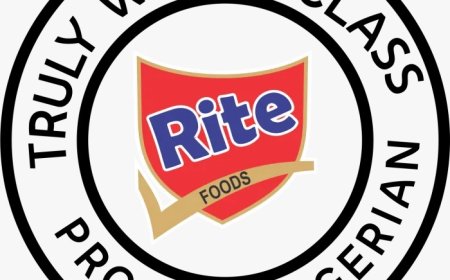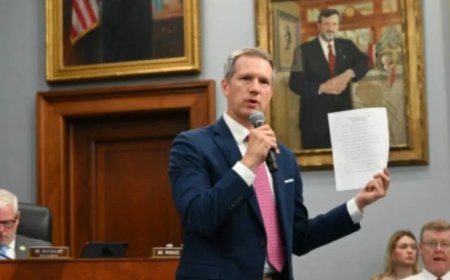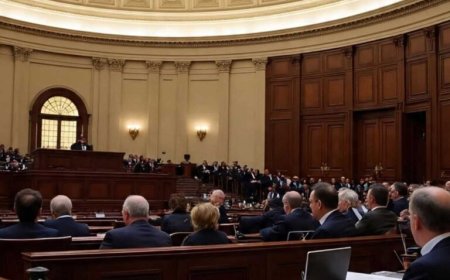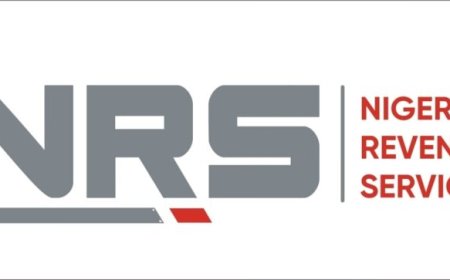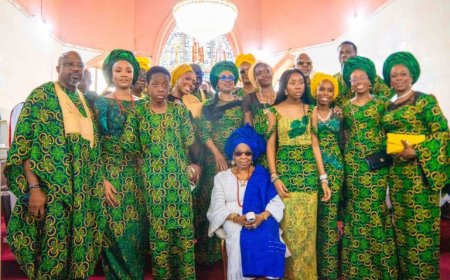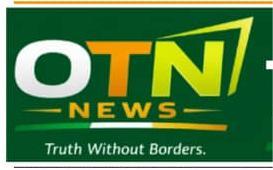FG Unveils 50 Tax Reliefs to Take Effect in 2026, Targets Low-Income Earners, Small Businesses

By: Israel Adeleke
OPEN TELEVISION NAIJA (OTN) News reports that as part of a comprehensive fiscal reform agenda aimed at creating a fairer, simpler, and more inclusive tax system for Nigerians, the Federal Government has announced a landmark package of 50 tax exemptions and relief measures set to take effect from January 1, 2026.
OTN News further reports that the reforms, unveiled by the Presidential Fiscal Policy and Tax Reforms Committee, mark a significant shift from the government’s traditional focus on aggressive tax collection toward a system that prioritizes relief, accountability, and economic growth.
OTN News recalls that President Bola Ahmed Tinubu had on June 26, 2025, signed into law four major tax reform bills, which are: the Nigeria Tax Act (NTA); the Nigeria Tax Administration Act (NTAA); the Nigeria Revenue Service Act (NRSA); and the Joint Revenue Board Act (JRBA), forming the legal backbone of the administration’s tax reform efforts.
According to details published on the government’s official website, the new framework introduces reliefs across Personal Income Tax; Companies Income Tax; Value Added Tax (VAT); Stamp Duties; and Capital Gains Tax.
The statement, explained that from 2026, individuals earning the national minimum wage or less will be exempted from tax, while those earning up to ₦1.2 million annually will also enjoy full exemption, a move designed to cushion the effects of inflation and reduce the financial burden on low-income earners.
Other measures include reduced Pay-As-You-Earn (PAYE) rates for workers earning up to ₦20 million annually, 20% rent relief (up to ₦500,000), and tax deductions for contributions to pensions, life insurance, the National Housing Fund, and the National Health Insurance Scheme.
The new tax regime also provides broad exemptions for pension funds, gratuities, and retirement benefits under the Pension Reform Act, as well as compensation for loss of employment up to ₦50 million.
Sales of personal effects, two private vehicles annually, and owner-occupied homes will be free from Capital Gains Tax.
A major feature of the 2026 reforms is the focus on small and medium enterprises (SMEs), which employ millions of Nigerians.
The statement further explained that small firms with an annual turnover below ₦100 million and total fixed assets under ₦250 million will pay zero income tax, and will be exempt from withholding tax deductions, development levies, and supplier payment deductions.
Startups registered under government-approved innovation labels will also enjoy full tax exemptions, while businesses in agriculture, livestock, and dairy production will receive five-year tax holidays to boost food security and encourage agribusiness investment.
To stimulate job creation, it added that companies that hire and retain new employees for at least three years will receive 50% employment relief, while firms providing wage awards or transport support to low-income staff will qualify for 50% compensation deductions as part of their taxable income relief.
Investors and venture capitalists will benefit from capital gains tax exemptions on qualifying investments in local startups, while gains from share sales below ₦150 million per year will also be exempt.
It also noted that reinvested proceeds from larger gains will continue to enjoy partial relief, a move aimed at attracting both domestic and foreign investments into technology, agriculture, and renewable energy.
For ordinary citizens, the reforms maintain 0% VAT on essential goods and services, including basic food items, educational materials, health services, and pharmaceuticals. New additions include baby products, sanitary towels, disability aids, diesel, petrol, solar equipment, and agricultural inputs such as fertilizers, seeds, and farm machinery.
To promote green mobility, electric vehicles and their spare parts will also be VAT-free, alongside public road transportation and housing rent.
Additionally, the government has exempted electronic money transfers below ₦10,000, intra-bank transfers, and salary payments from the electronic transfer levy.
Transfers of government securities, shares, and stocks will no longer attract stamp duties, ensuring smoother financial transactions.
To raise public awareness, the government has launched a civic education initiative titled “Influencing for Good,” which encourages Nigerians to nominate social media influencers and content creators to spread accurate information about the reforms. The top 20 nominees will receive official training to communicate the benefits effectively.
According to the Committee, “Misinformation spreads fast, often to the author’s benefit but to the audience’s loss. Accurate information may travel slower, but it empowers everyone and earns lasting trust.”
While the reforms have been widely welcomed as a pro-people measure, some analysts caution that their success will depend on strong enforcement, accountability, and fiscal discipline.
OTN News observes that critics warn that without improved revenue collection systems and economic diversification, the extensive exemptions may strain public finances and risk widening Nigeria’s fiscal deficit.
Nevertheless, the Federal Government maintains that the 2026 tax reforms represent a historic opportunity to simplify taxation, empower citizens, and support inclusive growth across the nation.
What's Your Reaction?












